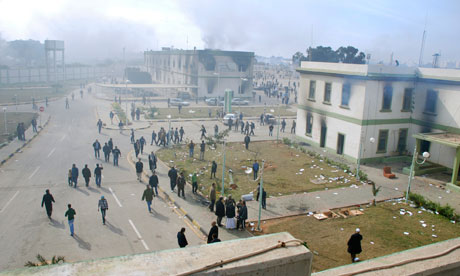United Nations undermines Internet Governance Forum
Ah, Global Bureaucracy!
Bureaucratic delay – or something else entirely?
The first preparatory meeting for the 2011 Internet Governance Forum has ended with a significant degree of uncertainty thanks to ongoing bureaucratic delays.
Over two days, representatives from business, government, civil society, and the technical community met in Geneva in order to decide the path forward for the sixth annual meeting of the Forum, dedicated to discussing global governance issues for the internet and due to be held in Nairobi toward the end of the year.
Those plans have been hamstrung by the United Nations in New York, which continues to delay crucial decisions about the event dates and the event’s key decision makers.
Closing the meeting, Kenya’s representative and meeting chair Alice Munyua repeatedly asked for others’ indulgence as she explained she did not have final dates for the event. It will be somewhere between September and December, she said. Nor had dates been finalized for the second preparatory meeting in May.
On top of that, there is still no replacement for the main meeting organizer, Markus Kummer, who left the United Nations in December, with a representative from the UN’s Department of Economic and Social Affairs (UNDESA) telling attendees that they were still finalizing the job description, which will then be put through the usual UN recruitment process.
And to make matters all the more surreal, the Multistakeholder Advisory Group (MAG), which was in the room trying to decide the agenda and structure of the next IGF, may not even formally exist.
The MAG has been put together and chaired by former special advisor to the Secretary-General, Nitin Desai, since 2004. Desai was appointed by former Secretary-General Kofi Annan, with whom he shared a good relationship, but ended his term earlier this year.
The new Secretary-General has yet to decide a replacement Special Advisor and only that person can decide on the make-up and structure of the MAG, the UN has decided. In response to questions about this crucial role, a UN representative said he did not know when a decision would be made and refused to even be drawn on the process that will be used to arrive at a decision.
While many would be tempted to write off the destabilising delays as typical United Nations bureaucracy (and a good reason why the organisation should not be given a central role in governing the Internet), the widespread suspicion is that they are deliberate.
The Chinese government in particular has been behind efforts to turn the open and “multistakeholder” IGF – where everyone has an equal say – into a traditional inter-governmental body where decisions are made solely by government representatives.
Those attempts have been consistently stymied by Western governments - as well as business, civil society and the technical community - who wish to maintain the broader form of decision-making that has made the Internet what it is today.
However, with China a rising force in the United Nations under Secretary-General Ban Ki-moon, the end of the IGF’s initial five-year remit has been used to try to force the IGF onto a different path. The head of UNDESA, Chinese national Sha Zukang, has made various efforts to move the IGF into a more governmental direction.
At the same time, UNDESA is half-competing with another arm of the United Nations, the Commission on Science and Technology for Development (CSTD), which is in charge of deciding broader changes to the structure of the IGF. The CSTD has also taken a very pro-government approach, most recently causing outrage when it held a last-minute and late-night meeting in December in order to push through a decision that the crucial IGF working group would only be comprised of government representatives.
In this context, delays to deciding the two key posts for the IGF – the Executive Coordinator and the Special Advisor – as well as the continued failure to name actual dates for the meeting (ostensibly in order to fit in with Under-Secretary Sha’s schedule) provide the pro-governmental forces with greater leverage over the process while frustrating efforts by the pro-multistakeholder group to continue on in the same vein as the previous five years.
Pushing on
Nevertheless, attendees in Geneva appeared determined to push on with the business of the Internet Governance Forum – designed to act as a global focal point each year for the world to discuss big issues stemming from the Internet.
In the course of discussions, the theme that has been on the minds of many in recent weeks – the role the Internet has played in the Middle East uprisings – came to the forefront. As topics go, it is likely to be extremely interesting to a very broad group of individual worldwide, although MAG members were at pains to ensure the IGF maintained its traditional neutrality, as well as continued the work from previous years.
The end result was the final title: “Internet as a catalyst for change: Access, development, freedoms and innovation.”
With traditional governments doing everything they can to impose old and outdated structures on the IGF, the irony was far from lost on those in the room.




 click here for story
click here for story



















